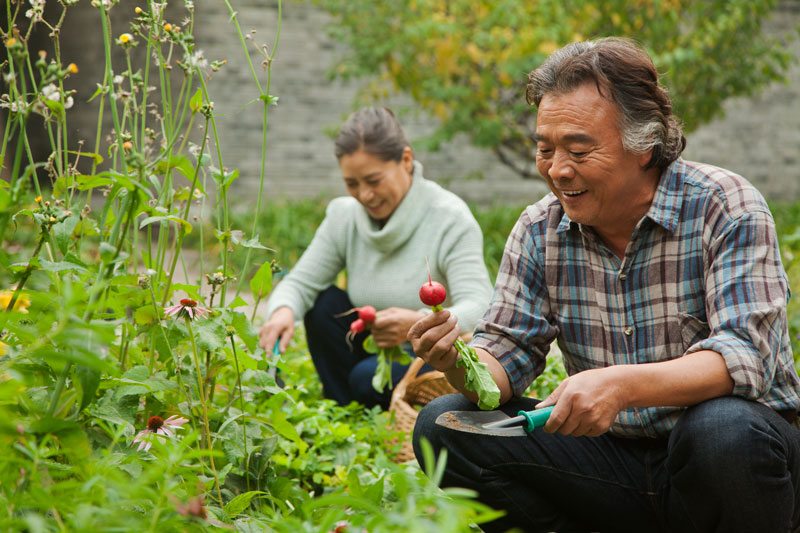
As people age, many have to give up hobbies they enjoyed as young adults for activities that are less physically strenuous. Pick-up basketball games give way to golf. Hiking a steep mountain trail is replaced by leisurely walks on flatter terrain. This is why many seniors take up gardening. It’s a great way to exercise muscles and bones with little risk of injury.
Plus, with gardening, you’re actually producing something that has real health benefits, such as fruits and vegetables, along with flowers and other decorative plants that you enjoy simply because they add to the ambiance of your yard or home.
That said, while the risk of injury is low, it’s not zero. The possibility of a repetitive-motion injury is always present and, depending on the climate where you live, you have to be careful not to get too much exposure to the heat and sun. Still, gardening is perfect for getting moderate exercise in a low-impact manner, as well as providing a range of additional health benefits.
Health benefits of gardening.
Study after study has shown that, for seniors, even small amounts of physical activity can help you live longer while improving the quality of life. Gardening involves a lot of low-impact activities, such as digging in the dirt with a shovel or hand trowel, carrying items that are a little heavy without being backbreaking, and using yard equipment. Practically every movement involved with gardening helps you build strength, improve flexibility, and increase endurance.
Gardening outdoors exposes you to natural sunlight, which is necessary for your body to produce vitamin D, a key nutrient for maintaining healthy bones, protecting you from osteoporosis, and strengthening your immune system. Just be sure to apply sunscreen and avoid overexposure to heat and humidity.
Another benefit of working in your garden is that it involves activities that specifically strengthen your hands and your grip. For many seniors, losing hand strength is one of the more difficult aspects of aging because it makes it difficult to handle simple tasks like opening jars, cooking or baking, and even making your bed in the morning.
Gardening safety tips.
To enjoy all the benefits gardening offers, it’s important to do so safely. Here are a few tips that will help you enjoy this relaxing activity while minimizing the possibility of getting hurt.
- Pace yourself by alternating between some of the easier gardening tasks and those that require more physical effort. Overexerting yourself and trying to do too much while you’re tired often leads to accidents that cause injury.
- To protect yourself from overexposure to the sun, do your gardening early in the morning or shortly before sunset, avoiding the highest temperatures of the day. And drink plenty of water so you can stay hydrated.
- If you find it uncomfortable to crouch or bend, making it difficult to work at ground level, try using a trellis or vertical garden. This will allow you to stand or sit in a chair while you work. Another option is to build raised flower beds with room to sit on the side while gardening.
- Get family, neighbors, and friends involved with your gardening projects. This lessens the load you have to carry while also making it a social activity. Encourage others to help you plan and design your garden and even help you pick out the plants and flowers you want to include. In fact, if you have a vegetable garden, invite them over to enjoy your harvest when it’s ready.
Gardening is a lot of fun and highly satisfying for many seniors, and can be a safe way to stay active if you follow these tips. And whether you prefer a decorative garden, a fruit-and-vegetable garden, or one that combines both, you’ll feel a sense of real accomplishment when it comes into full bloom.

